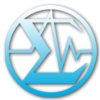
Institute of Computational Technologies

The Institute of Computational Technologies was established in 1990 at Novosibirsk Scientific Centre, Russia. The Institute has been founded and since then leaded by academician (full member of the Russian Academy of Sciences) Yuri Shokin.
Currently academic staff of the Institute includes 1 full and 1 corresponding member of the Russian Academy of Sciences, 17 Professors, and 29 Doctors of Philosophy (PhD).
The Institute of Computational Technologies is now conducting both fundamental and applied research on the cutting edge of informational and computational technologies.
Main directions of research are design and implementation of the informational-telecommunication technologies in decision making problems; mathematical modelling and computational algorithm development applied to a wide range of problems arising in mechanics of continuous media, physics and ecology.
The Institute is a leading organization on informational-telecommunication technologies within the Siberian Branch of the Russian Academy of Sciences (SB RAS). Our staff has implemented and is now maintaining a regional SB RAS data exchange network. This network covers scientific centres in Novosibirsk, Irkutsk, Tomsk, Krasnoyarsk and other cities in Siberia. The network serves more than 150 research, educational and social organizations with more than 40 000 active users. This network is the biggest academic network in Russia.
Design and implementation of an Integrated Distributed Informational System of SB RAS has begun recently. The system will provide a unified access tool to various informational resources using the GRID technology.
Academician Yuri Shokin has established a well-known scientific school. The main emphasis of the school is on development of informational and computational technologies for decision making problems arising during design and maintenance of complex technological systems, monitoring the environment, prediction of consequences of the natural and technological disasters. New major world-class results in the field of mathematical modelling and computational experiment, ecology and safety of systems and objects are obtained at the Institute.
Many pioneering works on the interval mathematics were conducted and the Institute is continuing to hold a leading position in this field. The Institute is renowned for the fundamental results in the qualitative theory of PDEs, justification of new principals for the turbulence modelling and for the economical computational splitting methods on structured and unstructured grids applied to aero and hydro dynamics problems and plasma physics.
A number of important problems of modelling of flows in hydro turbines, turbulent flows in the wakes behind the bodies, stress-strain state calculation and determination of loads leading to the failure of plates, cylindrical and combinational shells made from modern composite materials have been solved.
Methods and technologies for environmental monitoring are proposed including prediction of emergences related to the tsunami run-up, dam breaking and pollution dispersion in the atmosphere and water reservoirs. Models of interaction of the super powerful laser pulses with plasma of sub and supercritical density are also developed.
Modelling of the plasmochemical etching reactors is carried out on the base of Navier Stokes equations in the Boussinesq approximation.
Computation technologies for solving the problems of nonlinear optics (soliton transmission lines, forced transmission systems with dispersion) are developed. A mathematical model for the unsteady process of formation of the low temperature vapor-water plasma in the semi closed volume under the action of high intensity impulse electric discharge and subsequent flow of this plasma jet into submerging area has been formulated.
A mathematical model and the technique for numerical modelling of non stationary processes taking place in various gas generators working on solid fuel are obtained. Such devices, for example, are used for indoor fire fighting, in supercharging of fuel tanks of the liquid-propellant rockets and in the crew emergency systems.
During the last 5 years our researchers have won more than 180 national and international grants, 7 Fellowships for Most Prominent Russian Scientists. About 300 referred papers and 20 books were published. Our scientists were awarded 15 first doctoral (PhD) and 7 second doctoral (DSci) degrees during that period. The success of our scientists was recognized by 2 Russian Federation State Awards.
Since 1996 the Institute publishes a scientific journal "Computational Technologies". The journal publishes original and review papers on mathematical modelling, computational and informational technologies. The Institute has close scientific ties with foreign research centres. Since 2004 a special Russian-German Centre for Computation Technologies and High Performance Computing is affiliated with the Institute of Computational Technologies and the Centre for High Performance Computing (Stuttgart, Germany).
|



